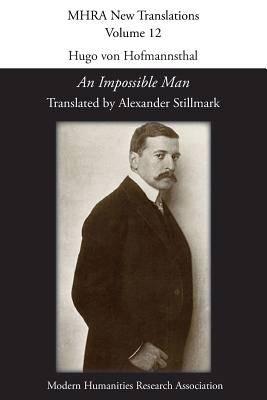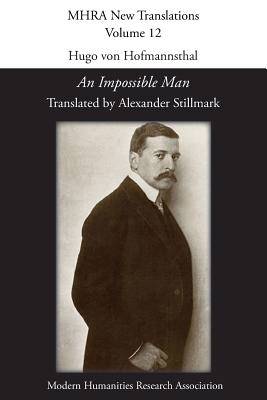
- Retrait gratuit dans votre magasin Club
- 7.000.000 titres dans notre catalogue
- Payer en toute sécurité
- Toujours un magasin près de chez vous
- Retrait gratuit dans votre magasin Club
- 7.000.0000 titres dans notre catalogue
- Payer en toute sécurité
- Toujours un magasin près de chez vous
Hugo von Hofmannsthal, 'An Impossible Man'
Description
Hofmannsthal's comedy An Impossible Man is by common consent considered his stage masterpiece and has assumed the status of a classic in German-speaking countries. It is a play both about the passing historical moment which marked the end of the Habsburg era, together with its culture and class structure, whilst it is also a finely gauged critique of language as the badge of that culture. The highly polished, crafted diction the playwright employs shows up language as the flawed but indispensable vehicle of social communication. Hofmannsthal's dramatic technique is comparable to Chekhov's, since he uses conversation mainly for expository purposes with largely static effect, and by his choice of an essentially passive hero who is a problem to himself and to others. The problematic nature of language (a constant theme in Hofmannsthal's work and most consummately expressed in A Letter of 1902) is identified with and given voice through the complicated character of the hero Hans Karl. Moral seriousness is so finely interfused with a lightness of ironic texture in this comedy that no trace of gravity remains.
Spécifications
Parties prenantes
- Editeur:
Contenu
- Nombre de pages :
- 150
- Langue:
- Anglais
- Collection :
- Tome:
- n° 12
Caractéristiques
- EAN:
- 9781781882740
- Date de parution :
- 17-08-16
- Format:
- Livre broché
- Format numérique:
- Trade paperback (VS)
- Dimensions :
- 156 mm x 234 mm
- Poids :
- 217 g

Les avis
Nous publions uniquement les avis qui respectent les conditions requises. Consultez nos conditions pour les avis.





